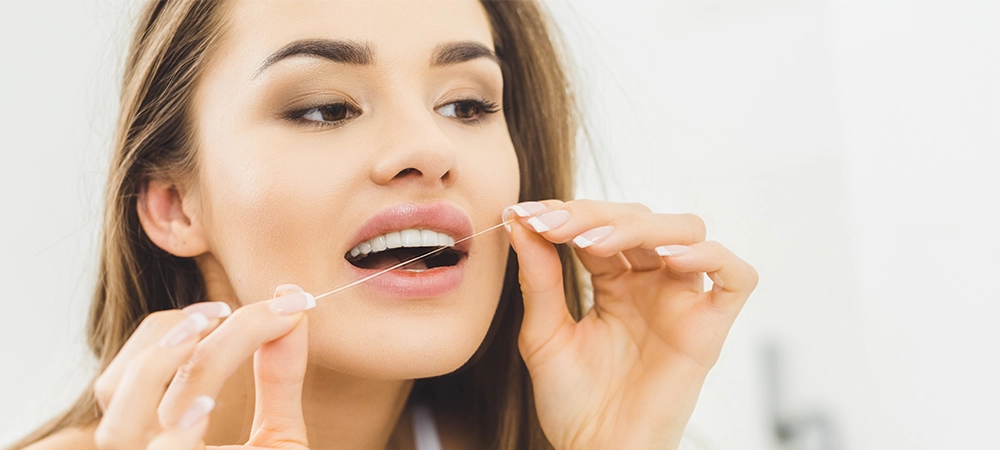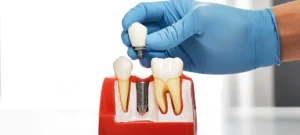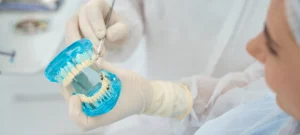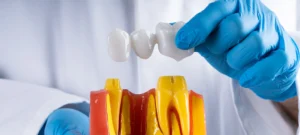How to Keep Good Dental Hygiene After Dental Implants
Dental implants are a popular and effective solution for replacing missing teeth. This type of surgery involves inserting a titanium post into the jawbone, which acts as an artificial root to support replacement teeth.
The success rate for dental implant surgery is high, but for it to be successful and long-lasting, you must take proper post-operative care. Good dental hygiene after dental implants helps ensure your new smile stays healthy and strong for years to come.
In this article, we’ll discuss the importance of good oral hygiene following implant surgery and tips for keeping your gums and mouth clean after getting implants.
Immediate Post-Operative Instructions
After your dental implant procedure, your dentist will give you specific instructions to ensure proper healing. It’s important to follow these instructions closely to avoid any complications.
Applying gentle pressure with cool packs
Swelling and discomfort are common after dental implant surgery. You can apply gentle pressure with cool packs to the affected area to reduce swelling and discomfort.
Avoiding strenuous activity and smoking
It’s important to avoid strenuous activity and smoking after dental implant surgery. Strenuous activity can increase blood flow to the affected area, leading to bleeding and discomfort. Smoking can also delay the healing process and increase the risk of complications.
Rinsing with warm salt water and avoiding hot liquids
Rinsing with warm salt water can help to keep the surgical site clean and prevent infection. Avoid hot liquids, as they can irritate the surgical site and increase discomfort.
Brushing teeth while avoiding the surgical site
While it’s important to maintain good dental hygiene after dental implant surgery, it’s also important to avoid the surgical site when brushing your teeth. Use a soft-bristled toothbrush and gently brush around the surgical site to avoid damage.
Taking pain medication and avoiding alcohol/tobacco products
Your dentist may prescribe pain medication to help manage discomfort after dental implant surgery. It’s important to take this medication as prescribed and to avoid alcohol and tobacco products, which can delay healing and increase the risk of complications.
Soft food diet for four weeks
After dental implant surgery, eating a soft diet for the first four weeks is important to avoid damaging the surgical site. Soft foods include mashed potatoes, scrambled eggs, yogurt, and cooked vegetables.
Managing Swelling, Fever, and Bruising after Dental Implant Surgery
After undergoing dental implant surgery, it’s important to maintain good dental hygiene to ensure the longevity of the implants. In addition to practising good oral hygiene, managing swelling, fever, and bruising is also key for a successful recovery.
Why do swelling, fever, and bruising occur?
Swelling, fever, and bruising can occur after dental implant surgery due to the body’s natural response. Swelling is a common side effect and can last for a few days. Fever can occur due to an infection, which is a rare complication but can happen. Bruising can occur due to the trauma of the surgery.
How to reduce swelling and bruising with cool packs?
To reduce swelling and bruising, applying cool packs to the affected area can be helpful. Ice packs can be applied to the cheeks and lips for 10-20 minutes, with a 10-minute break in between.
This can help to reduce swelling and provide relief from any discomfort. It’s important to note that ice should never be applied directly to the skin as it can cause skin damage. Instead, wrap the ice pack in a cloth or towel before applying it to the skin.
When to seek medical attention for fever?
If fever occurs, it’s important to seek medical attention immediately. A fever could indicate an infection and, when left untreated, could cause complications.
Signs of infection include persistent pain, swelling, bleeding or discharge from the surgical site. Contact your dentist or oral surgeon.
Coping with Nausea from Pain Medication
After dental implant surgery, your dentist may prescribe pain medication to help manage any discomfort or pain you may experience. However, some pain medications can cause side effects such as nausea.
Here are some tips for coping with nausea from pain medication:
- Take your medication with food: Taking your pain medication with food can help to reduce the risk of nausea. Eat a light meal before taking your medication, or take it with a snack.
- Stay hydrated: Drink plenty of water and clear fluids to stay hydrated and prevent dehydration, which can worsen nausea.
- Avoid triggers: Avoid foods or smells that can trigger nausea, such as spicy or fatty foods, strong smells, or alcohol.
- Rest: Resting and avoiding physical activity can help to reduce nausea.
When to contact a medical professional for persistent nausea?
If your nausea persists or becomes severe, it’s important to contact your dentist or a medical professional. They can evaluate your symptoms and determine if there is an underlying cause or if a different pain medication may be necessary.
In some cases, persistent nausea may be a sign of a more serious complication, such as infection or implant failure. Seek medical attention if you experience persistent or severe nausea after dental implant surgery.
Activity Limitations and Resumption
One of the most important aspects of maintaining good dental hygiene after dental implants is to limit your activity in the first few days after the procedure.
Why should activity be limited in the first few days?
After getting dental implants, your body needs time to heal. It’s important to avoid any activities that could stress the implant site, as this could cause bleeding or even dislodge the implant.
In the first few days after the procedure, we recommend avoiding strenuous activity, such as heavy lifting, running or intense exercise. You should also avoid bending over or any activities that require you to lower your head below your waist.
How to gradually resume normal activity?
After a few days of rest, you can resume your normal activities gradually — by starting slowly and gradually increasing your activity level over time.
You should avoid any activities that stress the implant site, such as high-impact sports, for at least a week or two after the procedure. Instead, focus on low-impact activities like walking or yoga.
As your body heals, you can gradually increase your activity level and return to your normal routine.
When to avoid strenuous physical activity?
While it’s important to gradually resume normal activity after getting dental implants, there are certain activities that you should avoid altogether.
Strenuous physical activity, such as heavy lifting or contact sports, can stress the implant site and increase the risk of complications. If you’re unsure whether an activity is safe, it’s best to err on the side of caution and avoid it until you’ve fully healed.
Related Article: 4 Key Reasons Why Dental Care Matters Much More Nowadays
Aftercare Tips for Successful Dental Implant Healing & Results
Here’s what you need to do:
Daily brushing, flossing, and flushing routines
Maintaining a regular oral hygiene routine is essential for the success of your dental implants. Brush your teeth twice a day for at least two minutes with a soft-bristled toothbrush and fluoride toothpaste.
Flossing is equally important as it helps remove plaque and bacteria from hard-to-reach areas around your implant. Use a floss threader or interdental brush to clean around your implant. Lastly, an antibacterial mouthwash or flushing device can help kill bacteria and promote healthy gum tissue.
Weekly soft tissue massage
Massaging your gum tissue around the implant site can help promote good blood flow and speed up healing. Gently massage the gums with a soft-bristled toothbrush or a fingertip for about 1-2 minutes. This can help reduce inflammation and swelling while promoting healthy gum tissue growth.
Yearly check-ups with the dentist
Regular check-ups with your dentist are crucial for maintaining the results of your dental implants. During your appointment, your dentist will examine your implants and surrounding gum tissue to check for signs of infection, inflammation, or bone loss.
They may also take X-rays to ensure the implant is securely attached to the jawbone. Any issues can be addressed early before they become more significant problems.
How do these activities promote implant health?
Regular brushing, flossing, and flushing help prevent the buildup of harmful bacteria that can lead to gum disease and implant failure. Massaging the gum tissue promotes healthy blood flow, which helps speed up the healing process and promotes healthy gum tissue growth.
Regular check-ups with the dentist allow for early detection and treatment of any potential issues, which can ultimately lead to long-term implant success.
Final Thoughts
Taking care of your dental implants is essential for a successful implant healing process. It’s important to brush, floss and flush regularly, massage the gum tissue around the implant site weekly, and visit your dentist at least once a year for check-ups. Following these instructions can help ensure your dental implants remain healthy and secure in the long run.
The ultimate tip to getting the best results from your dental implant treatment is choosing a reputable dental treatment provider from the jump. Marketplace Dentistry is your neighbourhood dentist, offering a knowledgeable and caring team that strives to make our services as comfortable as they are effective.
And if you ever feel like you need additional guidance or support with taking care of your implant site, reach out to us for personalized advice on how best to maintain good oral hygiene. Call 647-846-7201 today.













